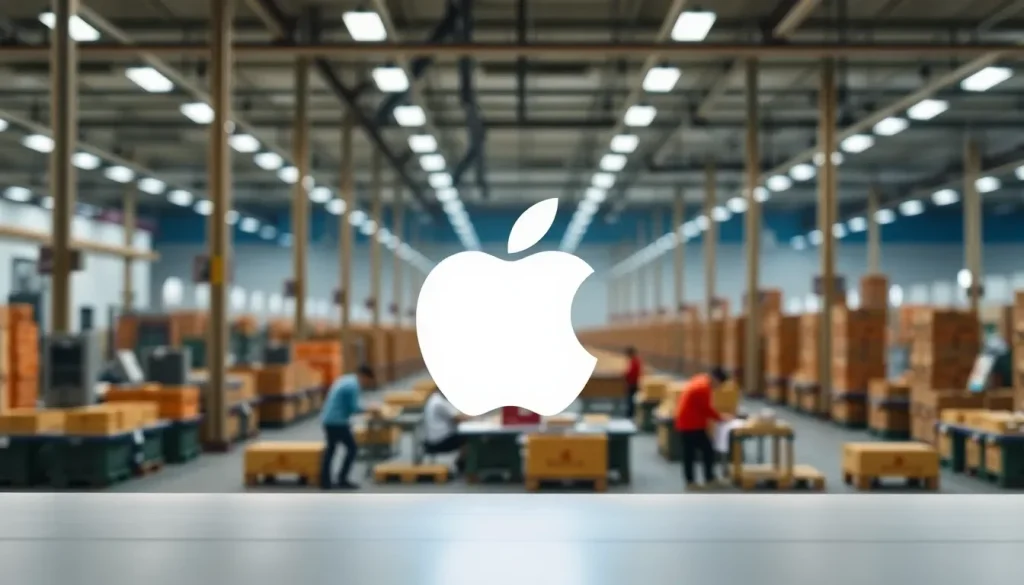Apple faces criticism for neglecting labor issues at Chinese supplier

Recent revelations about labor practices at Apple’s suppliers have reignited discussions around corporate responsibility and ethical sourcing. As consumers, many of us are increasingly aware of the impact our purchases have on global labor practices. This article delves into the findings of a report by China Labor Watch, shedding light on the persistent labor issues at one of Apple’s key suppliers, Foxconn Zhengzhou.
Labor conditions at Foxconn: A troubling overview
Founded in 2000, China Labor Watch is an independent non-profit organization dedicated to advocating for workers' rights in China. Over the years, the organization has consistently highlighted various labor violations occurring at Apple’s supply chain, particularly at Foxconn and Pegatron.
A recent report from China Labor Watch has drawn comparisons between the labor conditions at Foxconn Zhengzhou in 2025 and a similar study conducted in 2019. Despite some progress, the report paints a grim picture of ongoing issues that continue to affect workers.
Although there has been a notable elimination of underage workers in 2025, the report indicates that this is essentially the only significant improvement over the past six years. Many other labor-related problems remain unaddressed, leading to concerns about the overall treatment of workers.
Key findings from the 2025 report
The report underscores various critical issues that persist at Foxconn Zhengzhou. Here are some of the main findings:
- Wage System Struggles: The wage structure has remained stagnant, with base pay between 2,100 and 2,400 RMB (approximately $294–$336), only increasing to about 3,000 RMB ($420) when factoring in overtime and bonuses.
- Ethnic and Regional Discrimination: Reports indicate that discrimination based on ethnicity and region has worsened, raising serious ethical concerns.
- Occupational Safety Issues: The conditions related to occupational safety have deteriorated, putting workers at greater risk.
- Overtime Hours: Excessive overtime remains a significant issue, with workers often required to work beyond legally mandated hours.
- Unchanged Conditions: Other areas such as wage levels, training, and worker accommodations in dormitories have shown no improvement.
The report also emphasizes that the Chinese government is aware of these problems but has tolerated them in exchange for technology transfers from Apple. This dynamic complicates the push for better labor practices and raises ethical questions about corporate accountability.
Apple's response to ongoing criticism
In light of the report's findings, Apple has publicly reaffirmed its commitment to high labor standards. When approached by The Straits Times, the company stated:
“We are firmly committed to the highest standards of labour, human rights, environmental and ethical conduct. Our suppliers are required to provide safe working conditions, treat workers with dignity and respect, act fairly and ethically, and use environmentally responsible practices wherever they make products or perform services for Apple.”
Moreover, Apple highlighted its practice of conducting regular third-party audits within its supply chain. Whenever issues are raised, the company claims to act swiftly to uphold its standards. In this particular case, Apple stated that its teams were on-site and initiated an immediate investigation into the reported conditions.
Long-term implications for Apple's supply chain
The ongoing labor issues at Foxconn Zhengzhou raise significant questions about the long-term sustainability of Apple's supply chain. As the company continues to rely heavily on Chinese manufacturers, it faces increasing scrutiny from consumers and advocacy groups alike. The implications of these findings could affect not only Apple's reputation but also consumer trust and sales.
As a response to public pressure, companies like Apple may need to reconsider their sourcing strategies and invest more heavily in ensuring ethical labor practices. This could involve:
- Increasing Transparency: Companies could publish detailed reports on labor conditions and improvements over time.
- Implementing Third-Party Oversight: Engaging independent organizations to monitor labor conditions more rigorously.
- Worker Training Programs: Investing in training programs to educate workers about their rights and safety protocols.
- Creating Better Wage Structures: Reviewing and increasing wage levels to ensure fair compensation for all workers.
Consumer awareness and action
As reports like the one from China Labor Watch highlight ongoing issues in labor practices, consumer awareness becomes crucial. Shoppers can advocate for better practices by:
- Researching Brands: Understanding which companies uphold ethical labor standards.
- Supporting Ethical Companies: Opting to purchase from brands that prioritize fair labor practices.
- Engaging in Advocacy: Joining campaigns that promote workers' rights and better labor conditions globally.
As consumers, our choices can drive significant change. By demanding accountability from companies like Apple, we contribute to a global movement toward ethical labor practices.
For further insights into the labor conditions at Apple’s suppliers, you can watch this informative video:
Exploring the broader impact of labor issues
The labor practices of large corporations like Apple not only affect their immediate supply chains but also send ripples through local economies and communities. These issues highlight the importance of global supply chain ethics, where the responsibility extends beyond just one company.
In many cases, communities surrounding manufacturing plants can be adversely affected by poor labor practices, which can lead to:
- Economic Instability: Poor labor practices can contribute to local economic challenges and instability.
- Health Risks: Unsafe working conditions can lead to health problems among workers, impacting their families and communities.
- Sustainability Issues: The environmental impact of unethical labor practices can harm local ecosystems.
As public awareness grows, the expectation for companies to act responsibly increases. This dynamic creates an opportunity for positive change in labor practices across the globe.
Looking ahead: A call for corporate responsibility
In conclusion, the ongoing labor issues at Foxconn Zhengzhou present a significant challenge not just for Apple but for the entire tech industry. Companies must prioritize ethical labor practices and transparency in their supply chains. As consumers, we hold the power to influence corporate behavior through our choices and advocacy.
To read the full report by China Labor Watch, click here.
Accessory deals on Amazon
- AirPods Pro 3
- iPhone Air Ultraslim Magsafe Power Bank ($22.99)
- Apple AirTag 4 Pack
- Apple AirTag
- Beats USB-C to USB-C Woven Short Cable
- Wireless CarPlay adapter
FTC: We use income earning auto affiliate links. More.




Leave a Reply